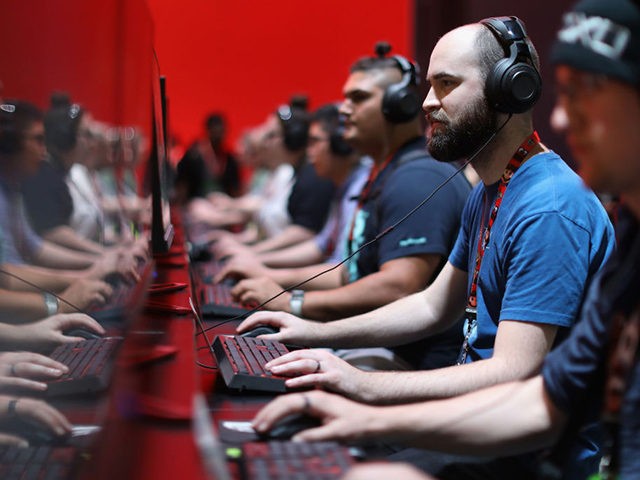Devotion, a horror videogame created by Taiwanese studio Red Candle Games which was blacklisted and banned soon after its release in February 2019 because it ostensibly contained an insult to Chinese dictator Xi Jinping, was again yanked from digital store shelves before anyone had a chance to buy it.
Devotion is an eerie game in which the players explore a haunted apartment complex in 1980s Taiwan. The few reviewers given a chance to play it have given it high marks, praising its unnerving atmosphere and engrossing plot. The game offers an unsettling but relatively non-violent experience, somewhat like popular horror films Insidious or The Conjuring.
The previous game from Red Candle, Detention, is also well-regarded and was adapted into a movie in 2019. Devotion was highly anticipated as the next project from the up-and-coming Taiwanese game studio, but then someone noticed a piece of paper pinned to a wall inside the game that compared Xi Jinping to Winnie the Pooh and called him a “moron.”
The Chinese Communist Party’s rotund leader is extremely sensitive to comparisons with the famous cartoon bear, to the point Winnie the Pooh has been banned across China. Pooh memes became very popular among Chinese dissidents before the Communist Party’s immense censorship apparatus began stamping them out.
Once the rather obscure image insulting Xi was discovered and spread across social media, Chinese users began flooding websites with negative reviews of Devotion, a practice known as “review-bombing.” The game’s aggregate scores for quality dropped because of these politically organized negative reviews, potentially threatening sales.
Red Candle Games apologized for the image, explained it was a bit of “placeholder” text left in the game by accident, and removed the reference to Xi from the game. This was a plausible explanation, given the game is set in the 1980s, long before Xi Jinping’s rise to power or the beginning of the Winnie the Pooh meme (which began with a photo of Xi walking beside former U.S. President Barack Obama and compared them to Pooh and his skinny, bouncy tiger friend Tigger).
The apology and edit to the game did not help, as the review-bombing continued, and even spread to Red Candle’s other game Detention. Chinese users began ferreting out other minor details of Devotion they considered offensive.
Red Candle succumbed to the pressure and removed Devotion from popular online game store Steam six days after it went on sale, citing “technical issues” and a desire to “ease the heightened pressure in our community.” The developers suggested further edits could be made to the game to remove any “other unintended materials” that might have slipped in and promised the revised game would someday be put on sale again.
That day finally arrived Wednesday, when another online store called Good Old Games (GOG.com) — so named because it originated as a platform for selling older computer games updated to work on modern computers — announced it would list Devotion for sale by the end of the week.
Red Candle Games celebrated the return of its game on Twitter, thanking fans for their “trust and support”:
Within a matter of hours, GOG reversed its decision and canceled Devotion.
“After receiving many messages from gamers, we have decided not to list the game in our store,” the retailer explained.
The announcement triggered significant mockery and derision on Twitter, including from one of the most prominent developers in gaming: Notch, the developer responsible for the hit game Minecraft.
“This is a sudden (and baffling) decision. Who are these mysterious ‘gamers’ and what exactly did they say that provoked GOG to pull the game?” PC Gamer wondered Wednesday, mourning the surprising reversal of “a symbolic victory over a censorious and small-minded Internet mob.”
Of course, most Internet mobs do not have the muscle of an aggressive, thin-skinned fascist global superpower behind them. As PC Gamer noted, the business license for the company that would have published Devotion in China upon its initial release was revoked, and even the game’s Taiwanese publisher “quietly backed off” from the title. At least Harvard University took steps to preserve the game so it cannot be completely erased from history by the Chinese Communist Party.
Red Candle Games released a statement on Thursday saying it was “regretful but winning to understand and respect GOG’s decision.”
“For the players looking forward to Devotion’s re-release, please accept our most sincere apology. This is a difficult predicament to overcome, but we won’t stop striving,” the studio said.
GOG is owned by game developer CD Projekt Red, a Polish studio best known for videogames based on The Witcher, a fantasy book series that was also adapted into a popular series by streaming giant Netflix. At the time of this writing, the company has not responded to media requests for comment on Devotion.
Ironically, GOG was recently attacked by the usual mob of Internet hysterics for supposedly appropriating a hashtag beloved of trans activists for a crass commercial promotion. The offending tweet read: “Classic PC games #WontBeErased on our watch.” But apparently classic games will be erased on their watch, if China says so.

COMMENTS
Please let us know if you're having issues with commenting.